Council Continues with Initiatives to Protect Environment
November 7, 2022
The Consumer Council of Fiji is part of a global campaign and a rising movement against unsustainable consumerism along with Consumers International – the membership organisation for consumer groups around the world. In order to promote sustainable consumerism, the Council and Consumers International collaborate each year to promote sustainable development and reduce poverty by promoting worldwide awareness and advocacy activities which encourage sustainable patterns of consumption and production. The key pillar of this enterprise is Sharing Community: ways that sharing and collaboration bring more equal and sustainable access to goods and services for the benefit of people and the planet.
In line with this initiative, the Consumer Council of Fiji is celebrated Green Action Week (GAW). GAW is celebrated internationally from 4th to 10th October every year.
What is Green Action Week about?
Green Action Week is built on three core premise:
• We face a crisis of people and planet.
Globally, millions of people do not have equal access to sustainable goods and services we need for a decent life, and too much stress is being put on the planet – our shared home.
• There is an alternative: a sustainable future on a healthy planet.
This crisis is fueled by unsustainable consumption and production. It is a system which is not natural but has been created by people – so people can change it. All over the world communities are proving that alternative methods can help us live in balance between people and planet.
• We can build this future through sharing community.
‘Sharing community’ is the method Green Action Week focuses on to achieve this future. When people collaborate and share goods and services, it brings communities closer together and brings social benefits that reduce our environmental impact at the same time. The sharing community works for people and the planet.
Why is the Council advocating on environmental issues?
The problems of the environment are essentially the problems of ordinary individuals. Whether in the sphere of human settlements, natural resources or pollution, it is the well-being or even survival of ordinary individuals that is at stake. Hence, where the environment is being damaged, the damage is being done by individuals – through unsustainable consumption and production. Therefore, collective action to protect the environment can only be achieved when there is wide spread individual awareness of the environmental consequences of consumption and production among consumers.
Project R2R
In order to promote sustainable consumerism, every year Consumers International coordinates the Green Action Fund (GAF), a collaborative project by Consumers International and the Swedish Society for Nature Conservation (SSNC). This annual grant scheme strives to promote sustainable development and reduce poverty by promoting worldwide awareness and advocacy activities which encourage sustainable patterns of consumption and production. The Consumer Council of Fiji is proud to be one of the 26 countries – and the only Pacific Island Country in receipt of this grant to conduct a project titled ‘From Ridge to Reef’ (R2R) with the theme ‘Sharing Community’. This funding is directly in line with the Green Action Week celebrations.
Threat to coral reef
According to a United Nations report, it is anticipated that 90 percent of the coral could disappear by 2050 affecting more than a quarter of the marine life. It is said that healthy corals buffer 97 percent of the shorelines from currents, waves, and storms, protecting lives and property.
With Fiji being surrounded by sea, most communities and individuals’ resort to the marine environment for their food source and income. Currently with an elevated demand for food supply and significant increase in the cost of living, in order to put food on the table at times people can resort to unsustainable practices, hence harming the environment.
Whilst the issue of unsustainable fishing practices is extreme and detriment, we often forget about our actions on land (ridge) which ultimately impacts the coral reefs. Practices such as employing adhesive detergents/chemicals in washing, burning and cutting down trees and improper disposal of consumer waste all contributes to the degradation of reefs. This is the impetus of the R2R advocacy project; to create awareness among consumers on how their individual actions on ridge; through to the shorelines have an impact on reefs.
Council Celebrates Green Action Week with Villages
As part of the project “R2R” the Council celebrated Green Action Week. This year, this celebration was done through activities directly at community level. The villages involved in Green Action Week includes Qelekuro, Lawaki, Natadradave, and Nataleira.
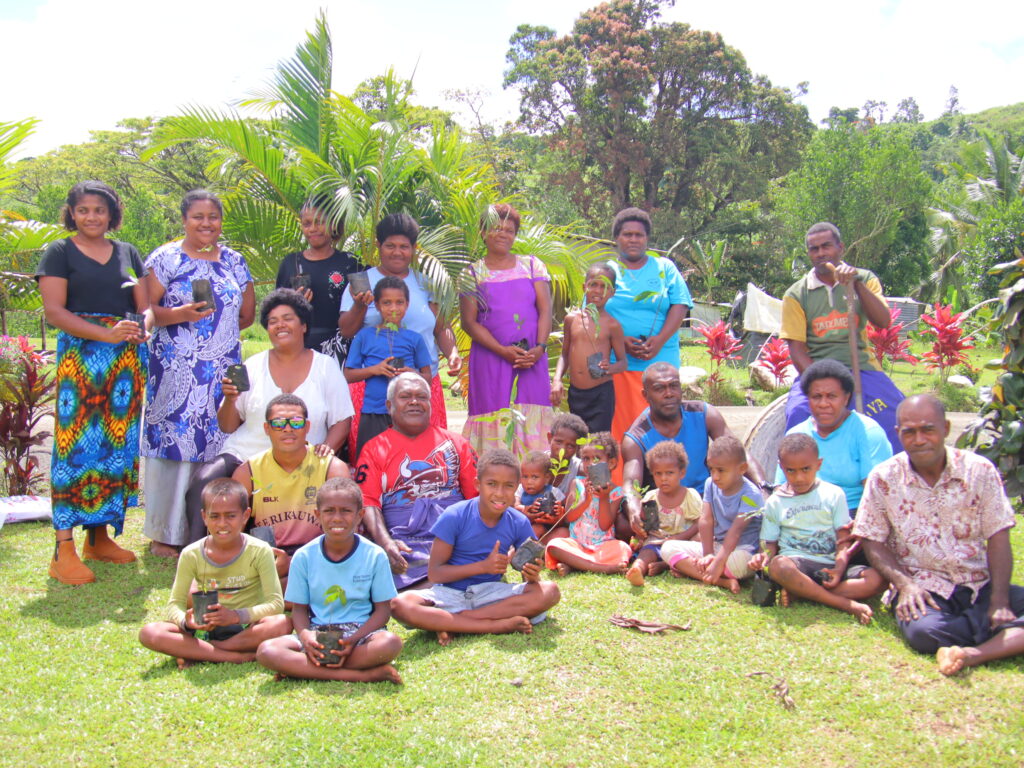
Tree planting to Inspire Protecting Our Reefs and Promote Food Security
This month, the Consumer Council of Fiji, with support from the Ministry of Forestry, visited the above-mentioned villages to raise awareness on how deforestation leads to the degradation of reefs.
In order to stress the importance of this, the Council with funding provided through Consumers International and the Swedish Society for Nature Conservation (SSNC) initiated a reforestation effort in the selected villages. During this initiative, over 4000 mangroves were planted along with 600 native and fruit trees.
This initiative is also part of the Council’s contribution towards global reforestation efforts, restoring lost forests, repairing damaged ecosystems and mitigating climate changes. Humans, animals and the environment depend upon trees for survival. Therefore, as deforestation continues, we must put back what we are taking away.
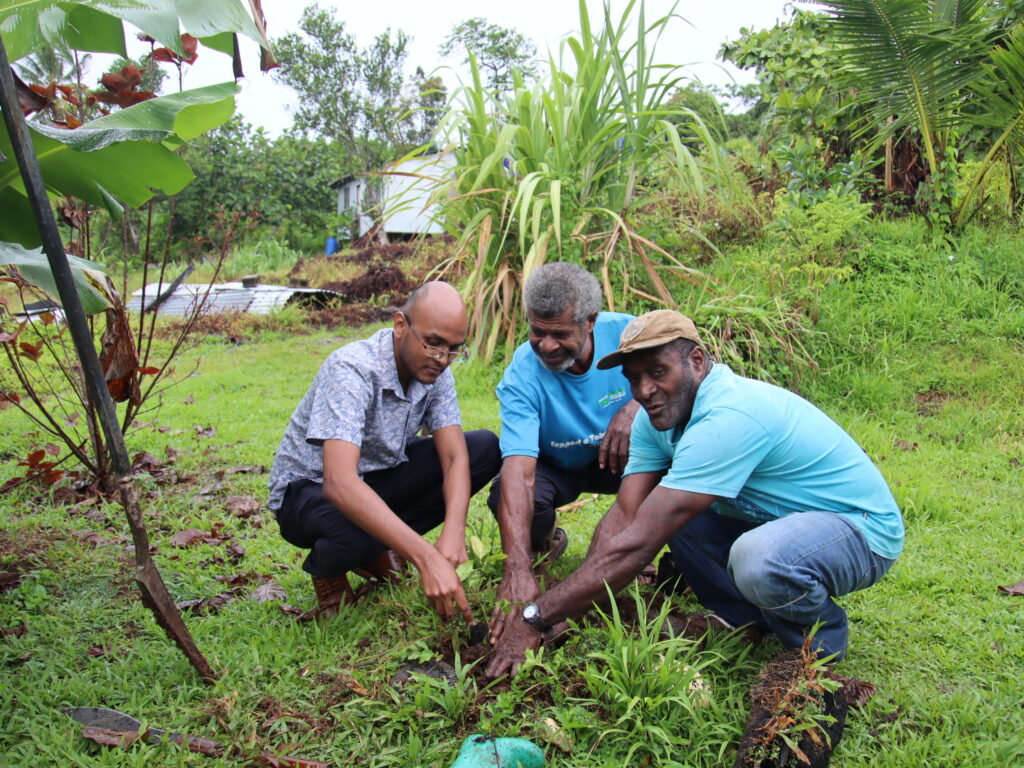
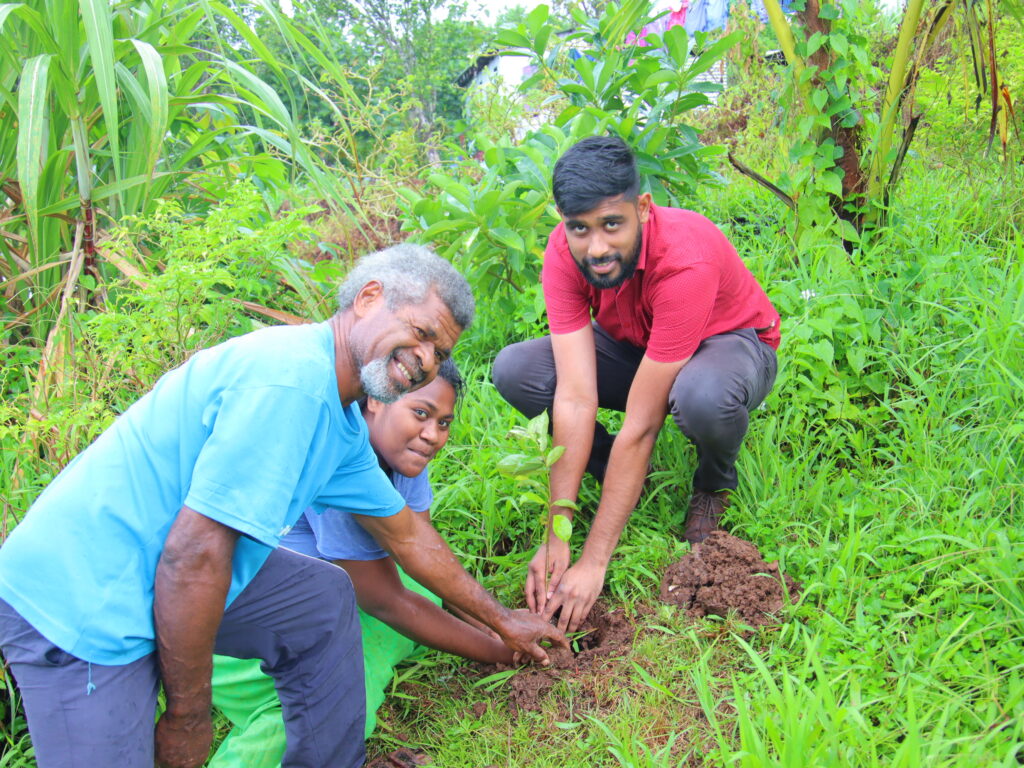
Trees and reef
Yes, trees do contribute to protection of coral reefs.
A study led by University of Queensland has found that nearly 85 percent of 5,500 coastal areas all over the world leach sediment to coral reefs. This phenomenon is currently the second largest threat to coral reefs after climate change. Scientists claim that increasing reforestation efforts in these regions could significantly reduce sediment run-off and protect reefs.
Excess sediment run-off along coastal areas is generally caused by land clearing and agrochemical pollution. The sediment causes a massive reduction in light levels, which are crucial for coral growth and reproduction.
“Increased sedimentation can cause aquatic ecosystems to be more sensitive to heat stress, which decreases the resilience of corals to pressures caused by climate change,” explained lead author Dr. Andrés Suárez-Castro from University of Queensland’s Centre for Biodiversity and Conservation Science.
Therefore, reforestation efforts such as the one initiated by the Council will positively contribute to the revitalization of our coral reefs.
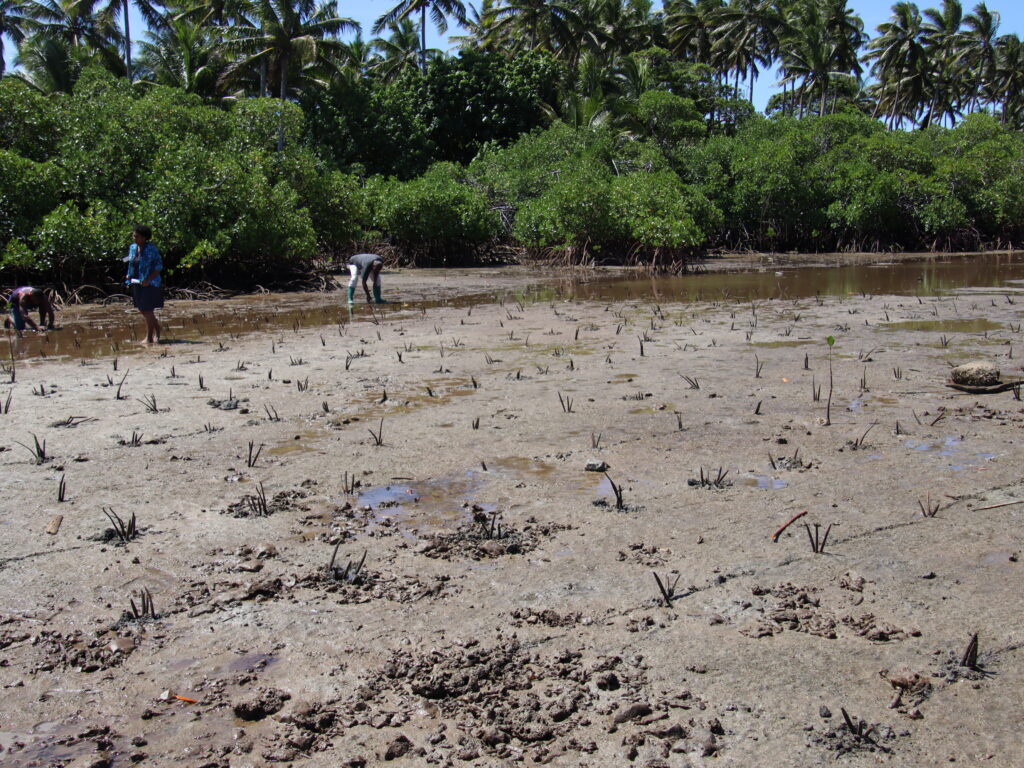
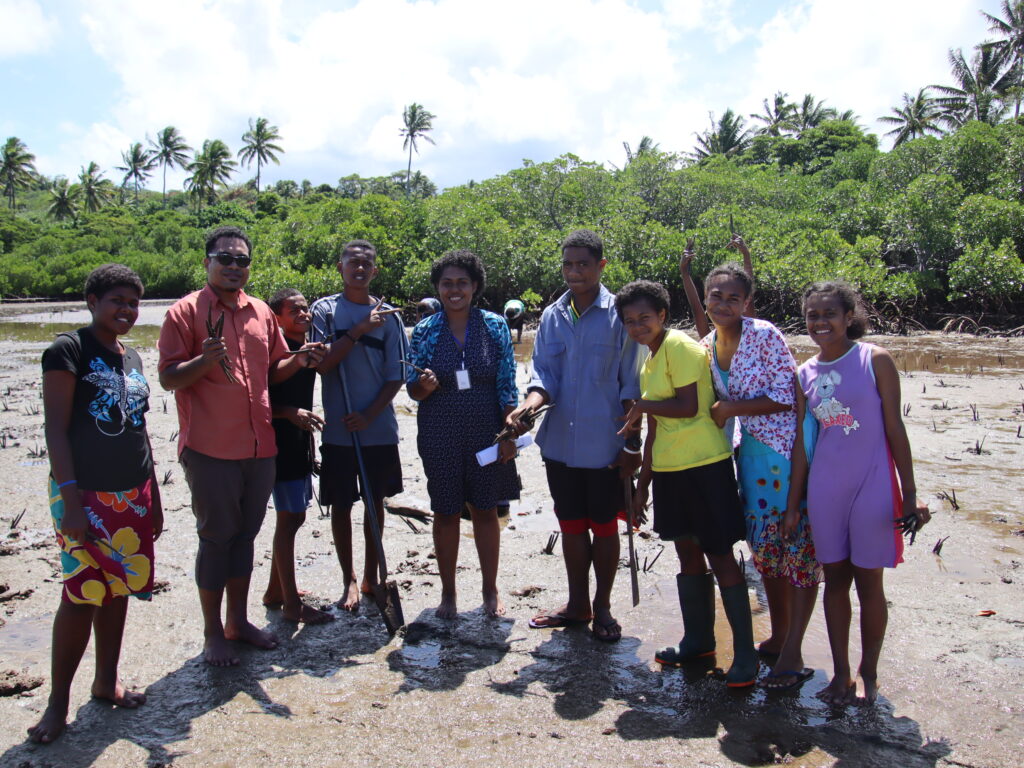
Trees and food security
During the Councils reafforestation initiative, along with native trees, certain fruit trees such as Guava, Mango, Lemon and Sour Soup were also planted. This was to “Kill two birds with one stone”. By including fruit trees in the reafforestation efforts, it will not only prevent sedimentation but will also contribute to the villages long term food security.
The project R2R and other similar enterprises are the Council’s initiative to be part of a wider, global movement against unsustainable consumerism and to help consumers find practical solutions for global consumer issues.
For any consumer issues, Fijians can contact the Council on toll-free number 155 or lodge a complaint using the Consumer Council of Fiji mobile app.
